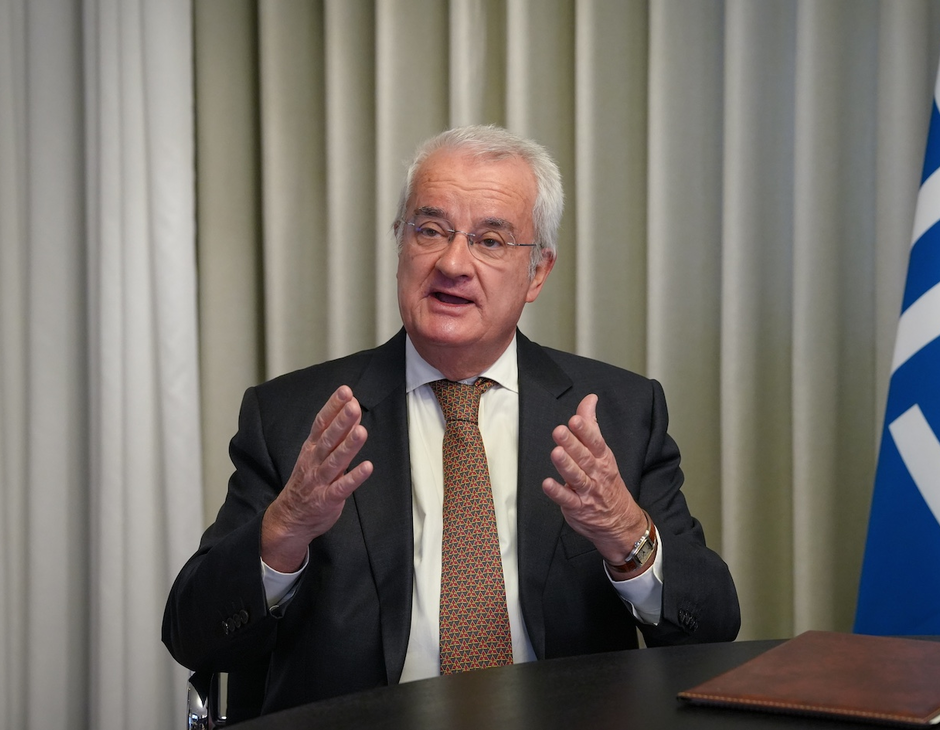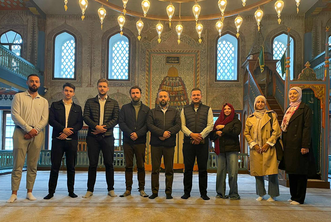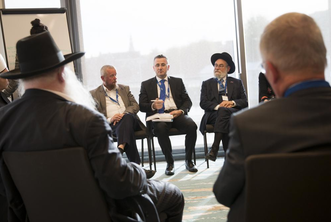By Ambassador António de Almeida Ribeiro: Acting Secretary General: - KAICIID
A young Black woman steps onto a tram in a European capital. She’s wearing a hijab, speaking softly into her phone in her native language. A man across the aisle sneers and mutters loudly, “Go back to where you came from.” No one intervenes. She gets off two stops early, her voice cracking, the dignity of her day shattered.
This isn’t an isolated incident — it’s a daily reality for too many in Europe today.
According to the EU Agency for Fundamental Rights (FRA), nearly 50% of Black people in Europe report having experienced discrimination in the past five years. The Being Black in the EU report documents systemic exclusion: from biased policing to limited access to housing and jobs. Muslim communities face similarly disturbing trends. In its Being Muslim in the EU survey, the FRA found that one in three Muslims had experienced harassment because of their religious identity. Meanwhile, antisemitic incidents have surged dramatically, with 80% of Jewish respondents stating that antisemitism is a serious problem in their country.
Christians, too, face increasing levels of hostility across Europe. According to the OSCE Office for Democratic Institutions and Human Rights (ODIHR), over 500 incidents of anti-Christian hate crimes were reported in 2022 alone, ranging from arson and vandalism of places of worship to physical assaults and threats against clergy and believers. The 2023 Hate Crimes in the OSCE Region report underscores the need for greater awareness and reporting of these incidents, as many go unacknowledged or are underreported by both states and civil society. This persistent marginalisation of religious communities, whether through acts of violence, political exclusion, or cultural stigma points to a deeper issue: religious identity is too often treated as secondary, or even suspicious, in Europe’s broader equality agenda.
These figures are not just statistics, they represent the lived experience of millions who are told, implicitly or explicitly, that they do not belong.
And yet, amid these sobering realities, a quiet truth persists religion, often viewed as a source of division, can also be a force for healing. It can reconnect fractured societies, inspire empathy, and offer a moral vocabulary for justice and human dignity. Religion, long treated as marginal to policy, is in fact the missing piece of 21st-century statecraft.
Why? Because social cohesion isn’t built in parliaments alone. It is shaped daily in neighbourhoods, in houses of worship, at school gates, with every act of kindness, every shared ritual, and every genuine conversation across difference. Religion matters because it speaks to people’s deepest values and motivations. It has the power to bridge divides when approached not as doctrine, but as dialogue.
Interreligious dialogue, in this light, is not a lofty ideal. It is a grounded, necessary practice, one that requires humility, persistence, and curiosity. Not easy, but essential. It’s about listening to those whose experiences challenge our assumptions, and finding in the other not a threat, but a reflection.
This was the spirit that animated the KAICIID and Baha’i International Community roundtable, Why Religion Matters: Towards the European Strategy Against Racism, held in Brussels on 12 November 2024. Far from being another institutional meeting, the roundtable created space for honest, often uncomfortable, conversations between policymakers, faith leaders, and civil society actors.
Participants explored how interreligious dialogue could meaningfully contribute to the development of Europe’s next Anti-Racism Action Plan. They spoke about faith communities as both targets and agents of change acknowledging religion’s ambivalent role, but also its immense, often untapped, potential for solidarity. Crucially, they called for an approach that is not merely inclusive on paper but transformative in practice.
The Brussels roundtable reflected a growing consensus: faith-based actors and religious leaders, in addition to civil society should be integral partners in shaping Europe’s response to racism. These groups are trusted by communities. They work at the margins. They understand the emotional terrain of exclusion. Their insights are indispensable.
This message echoed the findings of KAICIID’s expert meeting in Rome in April 2025, which brought together religious leaders, scholars, and policymakers to explore the connections between climate justice, social cohesion, and interfaith cooperation. Though focused on different issues, both events pointed to the same truth: sustainable solutions require multi-stakeholder dialogue rooted in values, not just interests.
Looking ahead to the 6th European Policy Dialogue Forum (EPDF), the distinct KAICIID dialogue platform in Europe taking place this year in November in Geneva, these conversations are gaining momentum. KAICIID’s partnerships with initiatives such as the Muslim Jewish Leadership Council (MJLC) and the European Muslim Leaders Majlis (EuLeMa) further demonstrate a long-term commitment to inclusion, dialogue, and trust-building across divides.
As Europe strives to translate its anti-racism aspirations into action, the path forward must be both top-down and bottom-up. European institutions must create enabling frameworks, but real transformation will happen locally, when municipalities invest in religious literacy, when schools teach empathy, and when faith leaders speak not only to their congregations but to each other.
A more cohesive, equitable, and inclusive Europe is within reach, but only if we are bold enough to reimagine what statecraft looks like: one that includes a spiritual dimension to the secular commitments of equity, solidarity, and human rights.
Religion, when expressed through dialogue and humility, is not a barrier. It is a bridge.



